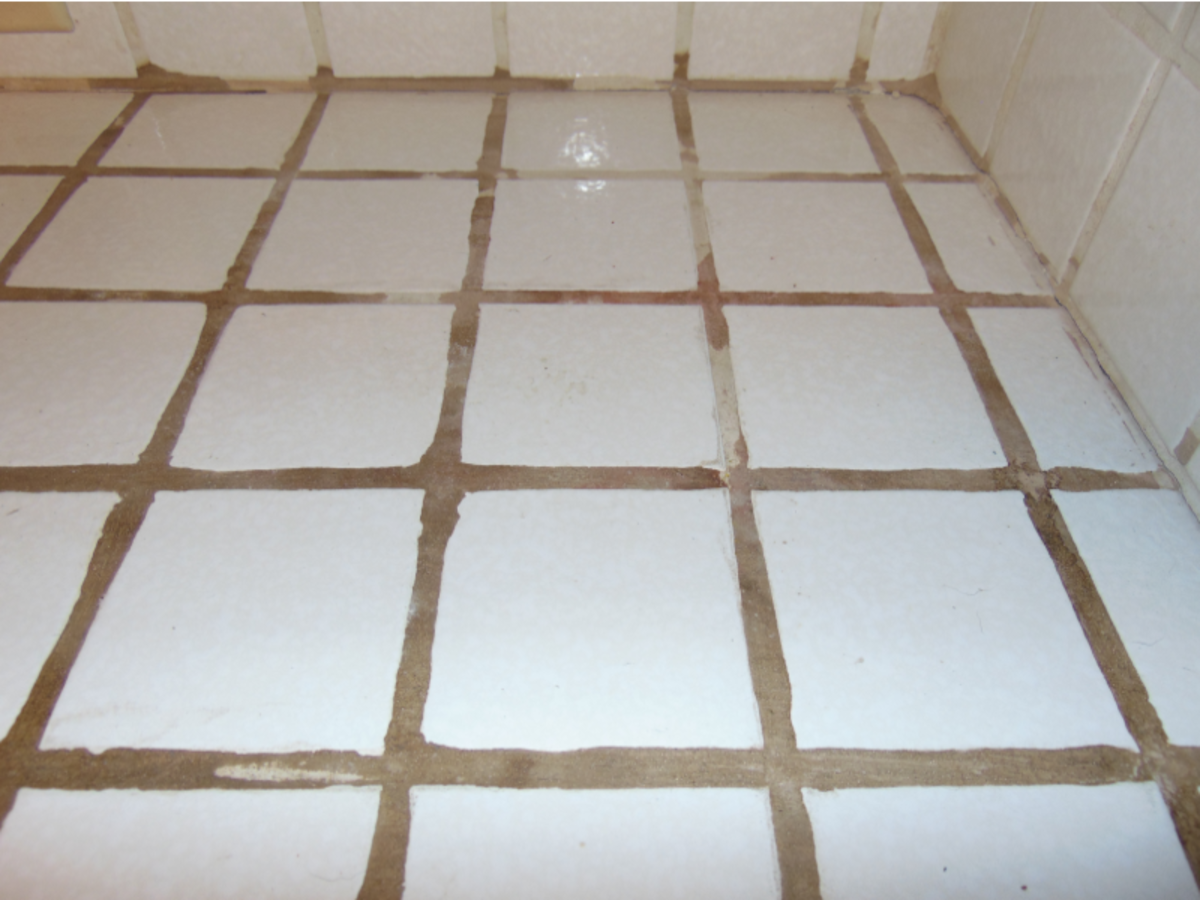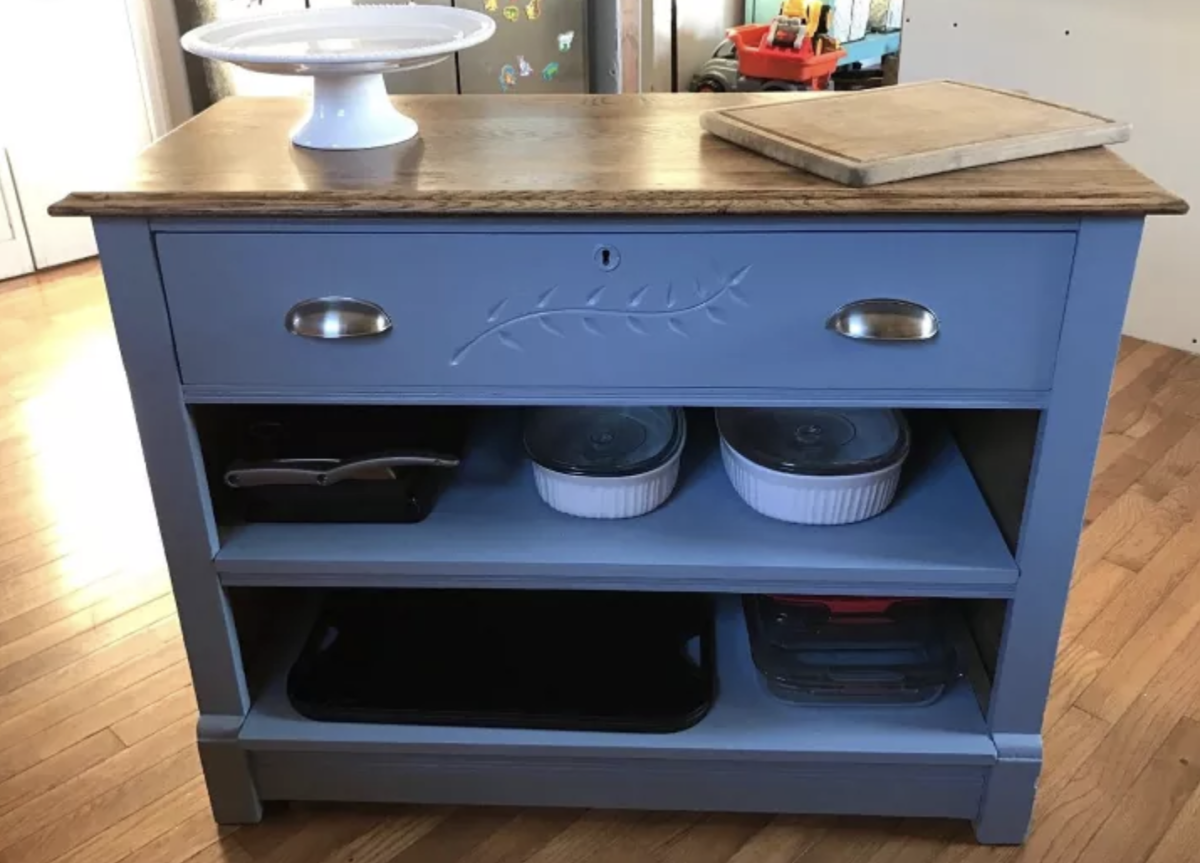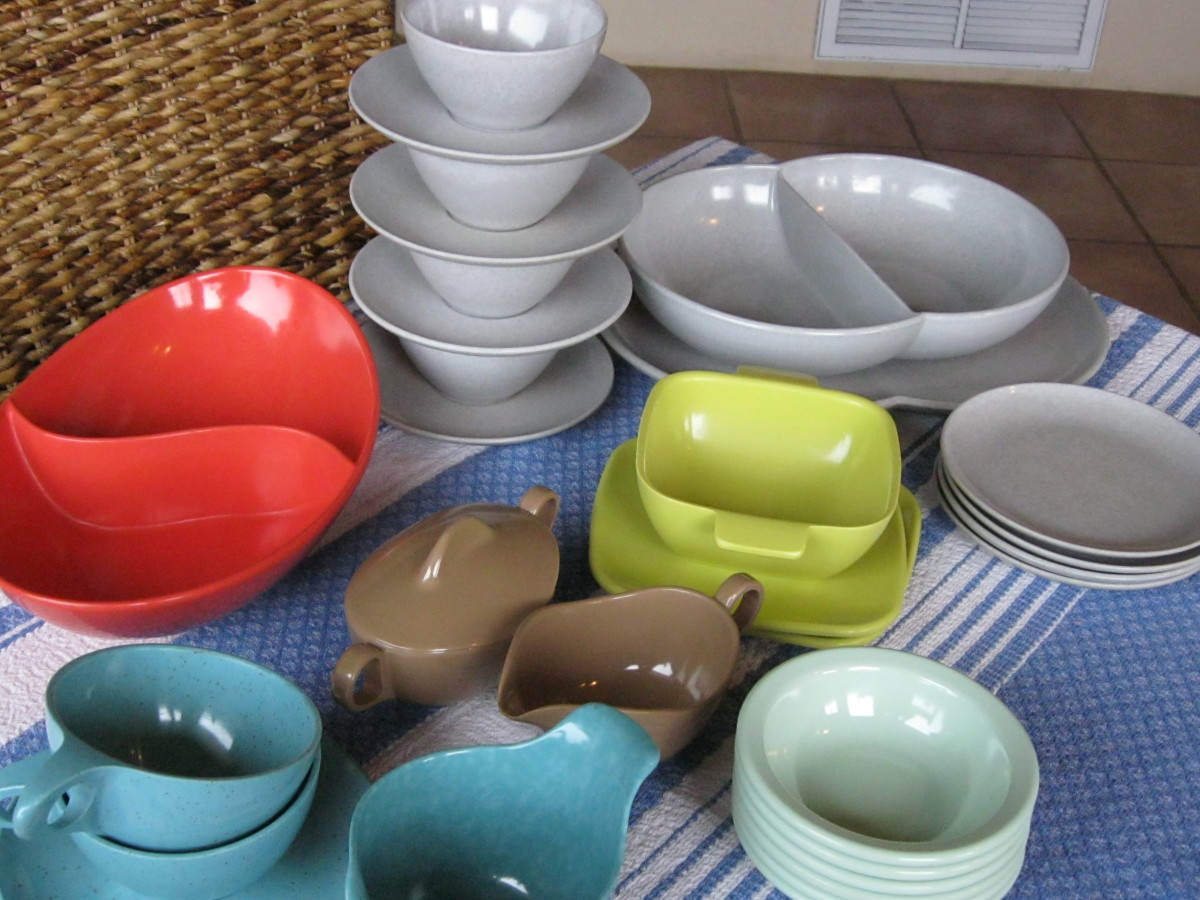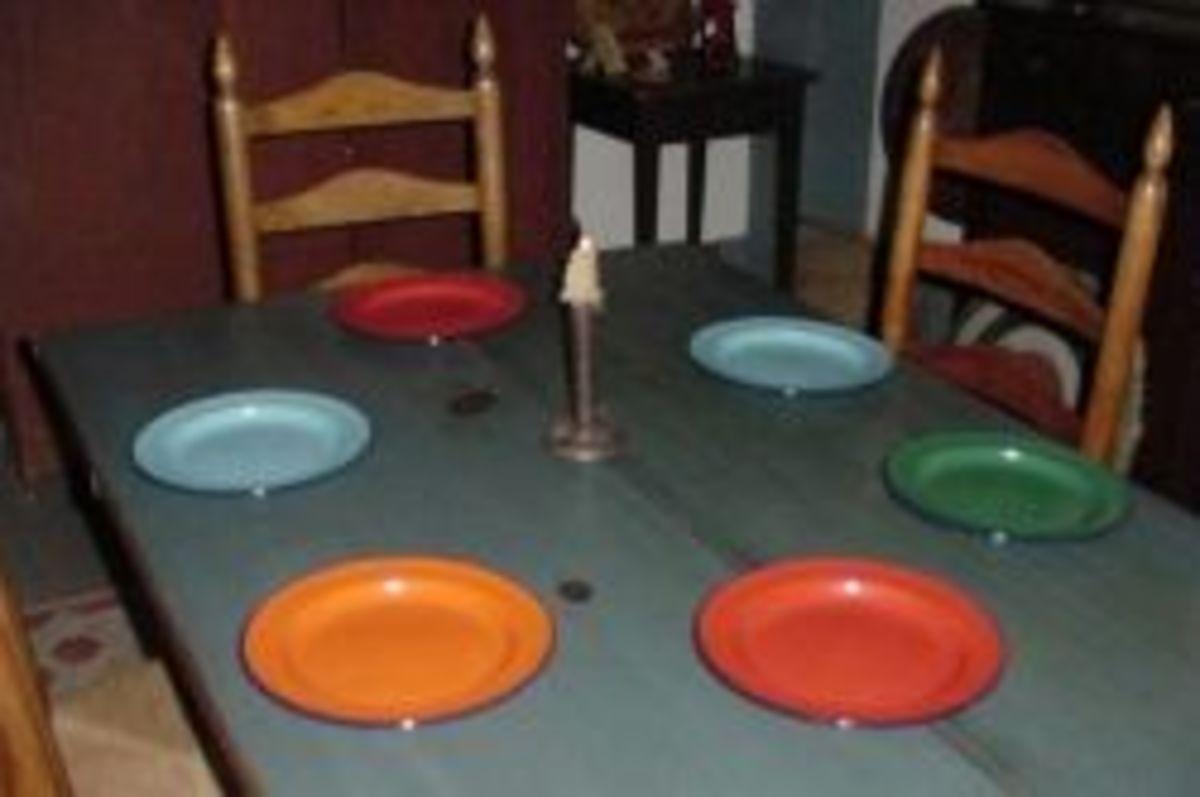Butcher Block Countertops: Pros and Cons in a Modular Kitchen
If you've ever wanted to cook, then stared at the cluttered countertops and sighed and ordered in pizza, then you're one of the many for whom kitchen counter space is at a premium. The lack of good working surfaces can make food preparation something to dread. An alternative to installing completely new cabinetry is to go for modular solutions. Wood-top butcher block countertops, butcher block kitchen islands and butcher block cutting boards are the newest thing for beautiful and functional kitchen convenience. The butcher block countertops pros and cons are outlined here so you can see if these attractive additions can help you manage your kitchen space and activities.
Health Pro: Wood
Wood is a natural anti-bacterial material, and research is showing that for cutting boards, which get a lot of usage, it's even safer than plastic or glass. If properly oiled and cared for, wood, although absorbant and organic, has many properties that repel or trap bacteria. As a material for a countertop, wood is one of the safest options you have.
Butcher Block Carts
Appearance and Materials: Pros and Cons
Many butcher block kitchen islands are custom designed. This, again, can be a pro and a con. You must know the dimensions you need. You must also have a sense of your kitchen design. I can't count the times I've gone out and bought something because it was gorgeous, then taken it home and realized it completely didn't match my interior design theme.
One butcher block countertop pro regarding appearance is that with natural wood, you'll have a hard time picking something that isn't beautiful--which implies a con--that you may end up with something that doesn't match your other kitchen furnishings and features.
For a stainless-steel, high-tech or utilitarian-look kitchen, forego the fancier butcher block countertops and kitchen islands. Stick with your theme and stay functional and minimalistic. If your kitchen is more high-style, look for the elaborate designs.
Some of the most popular woods for butcher block countertops are cherry, birch, walnut, maple, and oak. You have a choice of finishes, as well, whether a natural oiled finish or very glossy. When considering your choice of wood especially, be practical, but also be design-conscious. You can either:
- blend
- complement
- stand out
Blending: Meticulously match the butcher block countertop wood with the type of wood or stain of your kitchen cabinets. More than very slight variations in wood grain coloration can look clashing.
Comlementing: Seek stark contrasts--for example, if your kitchen cabinets are of black walnut, then pick a lighter colored wood such as oak, birch or maple for your butcher block countertops or kitchen island. The contrast should be definitive enough that this looks like a deliberate stylistic choice.
Standing out: This is better for butcher block kitchen islands than for countertops. For functional kitchens with lots of formica, granite or other non-wood material, treat the kitchen island wood as an aesthetic focal point for your kitchen.
Butcher Block Countertops Pricing: A Pro and a Con
Depending on where you buy butcher block countertops, you can manage to pay very little for the absolutely most utilitarian additions made of cheap wood.
If you are buying any butcher block object with joints, the construction may not be as durable, and the finish might be a cheaper laquer or paint.
Still, buying butcher block countertops cheap isn't necessarily a bad thing. For those on a budget, the low cost option is one of the pros of butcher block counter tops.
At some of the uppper end stores, you can pay several thousand dollars for large countertops or butcher block kitchen islands made of premium woods such as walnut, oak or cherry.
Buying Convenience: Con
Depending on where you live, it can be hard to find kitchen cabinet supply stores that make and sell butcher block kitchen countertops. Some manufacturers and merchants sell butchers blocks so you can do it yourself (DIY). Others do custom kitchen countertops. Others manufacture or import premade walnut, oak, or maple butcher blocks, kitchen islands, carts, counter tops and cutting boards.
Or try general home stores that are known for stocking discount kitchen supplies, such as Home Depot, Ikea or Lowes.
If you're looking for something extremely high end and very specific, or if your needs are unusual, you can hire a woodworking carpenter to custom make every feature of your kitchen island or countertop.
Butcher Block Countertops Care: Pro and Con
Con: You'll need to take special care cleaning your butcher block working surfaces. Harsh bleaches and detergents are usually not a good idea. Special cleaning products and mineral oils such as John Boos Mystery Oil Butcher Block Oil will keep the wood in good shape, prevent it from splitting, and maximize its natural anti-bacterial effectiveness.
Pro: If you get a stain on a formica countertop, could you ever dream of sanding or filing it off...? To me, keeping a butcher block countertop clean vs. another countertop material is half of one, six dozen of the other.
How to Care for and Clean Butcher Block Countertops
- Use knives that are not sharpened to a razor edge--not dull, but somewhat duller. This prevents damage to the wood surface.
- Use the entire block, and on both sides if a cutting board, not just one spot on one side.
- Don't use varnish or polyurethane on the surface of the wood.
- Rub food grade mineral oil with a clean cloth over the wood once every few weeks--but not too often. Go with the grain and then wait a few minutes before wiping dry. Avoid linseed oil or tung oil.
- After you've finished cooking for the day, scrape your butcher block with a stainless steel scraper to remove moisture, then pat dry with a towel.
- Any cracks that develop should be filled with non-toxic wood filler, to keep the butcher block surface sanitary.
- Follow the manufacturer's care instructions.
- Keep pools of moisture from gathering for long periods on the butcher block surfaces.
- It's best to avoid cutting fish or chicken, turkey, duck or other fowl on the butcher block surface.
Con: Butcher Block Kitchen Island/Table Combos
It's my own personal review, but I recommend you think carefully before buying an all-in-one kitchen island/countertop/table piece that's marketed to be usable as a table in a pinch, especially if it costs more than the alternative. If you're like most people, you'll mostly use your wood countertop for food preparation OR as a table, but not often both. You can end up paying more for a feature you won't use.
Butcher Block Countertops: Green? Con
Because they generally use new hardwood when they are new or custom made, butcher block countertops are not the greenest option for your kitchen.
If using environmentally renewable resources is your main consideration, then these types of working surfaces may not be the best choice.
Note, however, that these things last virtually forever, and the wood may be able to be recovered, depending on its state, care and use.
Butcher Block Countertops or Kitchen Islands
One con of butcher block countertops is that they don't necessarily provide new counter space or storage space. If you're lacking an existing platform, consider opting for a butcher block kitchen island instead (or if you really want to go all out, in addition).
With a kitchen island, you get new counterspace. And islands have a different kind of modularity. Mobility is possible if you choose one that comes with caster wheels. Butcher block islands usually come with shelving, cabinets or drawers. Cabinets don't always cost more, either.
© 2009 Chris Telden








